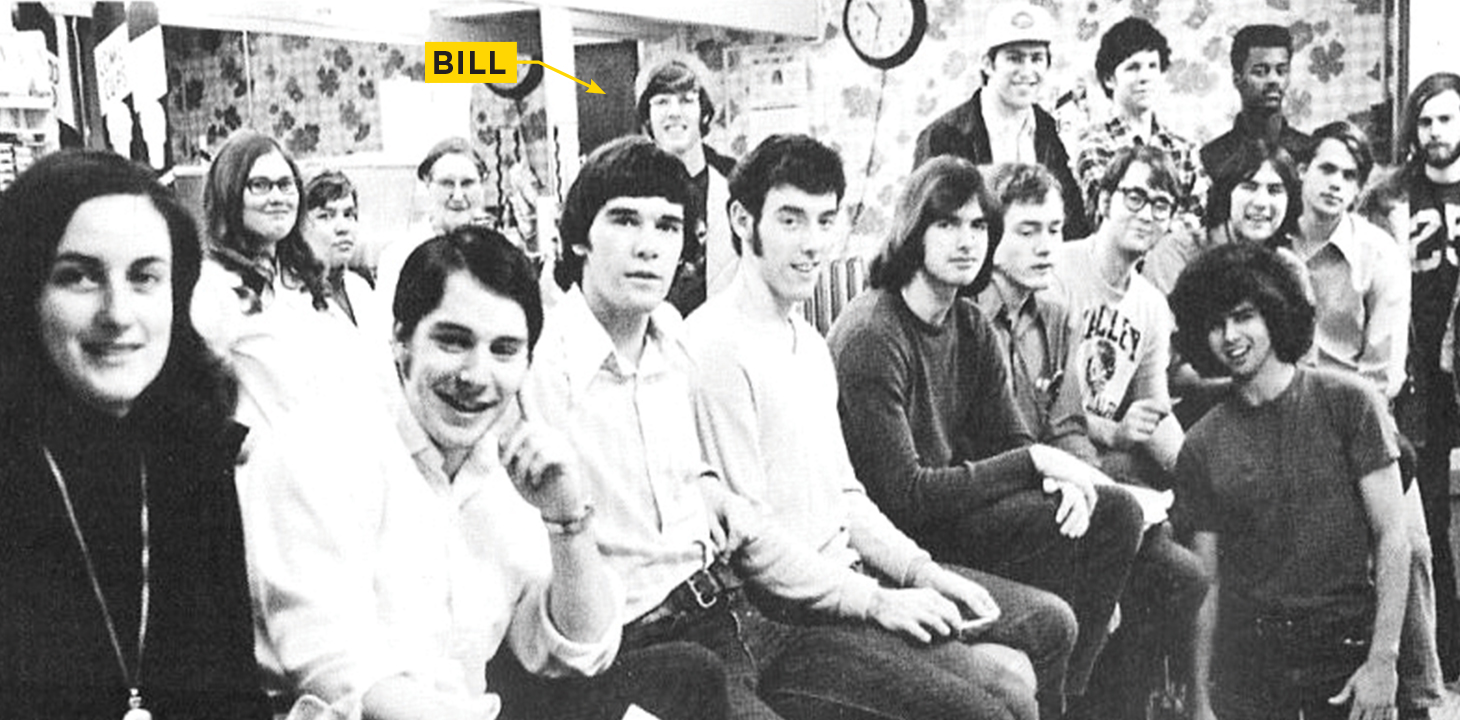Campus Mail Summer 2019

A Step in the Right Direction
Jose Morcuende (01R) is an angel! I cannot stress enough the importance of the work he and his staff do. It is not only third-world countries where this message needs to be spread, but right here at home.
I was born and raised in Iowa City, and my only child, Logan, was born in October 1998. His feet were turned in, but not so severely to be immediately labeled as clubfoot. From birth he saw an orthopedic surgeon who advised us to gently stretch his feet every time we changed his diaper and keep him in soft, structured leather baby shoes during the day. This did straighten his feet as promised, but as he grew, his feet got worse. His surgeon retired, so he was then referred elsewhere. Unfortunately, Morcuende was not the first doctor we met, and we left our appointment in tears with my son frightened by the horrible, graphic description of a surgical fix for his problem.
Thinking that we were out of options because we did not want an operation, my son and I went home, and life went on. Logan had a peculiar gait and was certainly never going to be a track star, but he could do all other things the same as his peers.
When Logan was about 8 years old, he was unable to enjoy a full day on his feet at a theme park, so I decided to call the Ponseti clinic. By the grace of God, we got Morcuende. Over the next year or so, he casted my son's feet, building him an arch and straightening his footbed. My son was always tall and stocky, and one day as Morcuende was at the foot of the casting room table, sweating as he manipulated Logan's foot with both of his strong hands, Logan looked down and asked, "Is this how you fix the babies?" Morcuende looked up, laughed, and said, "Oh, my, no, I would break them!" Holding up only his thumb and forefinger together, he added, "I do this."
Unfortunately for us, we met Morcuende much later than was optimal in Logan's life. I know, by the improvements he was able to make, Logan's outcome would have been much better if we had reached Morcuende when Logan was an infant. Currently, Logan's feet still cause him a lot of pain, and he will never be able to stand all day.
The Ponseti clinic should be common knowledge, the first course
of action, and standard treatment for all children with any type of foot
malformation. It deserves our full support and funding and much more
recognition than it receives.
Lisa Sewell Crawford
Iowa City
I was a Ponseti baby in the 1960s. As an adult it's hard to imagine what my life would be like today if I had not been. This is a a great article. Thanks to @JD_OLeary for writing it and everyone at @uihealthcare who's ever worked with the Ponseti Method. #grateful https://t.co/t35atCG2XI
— John Corrigan (@johnfcorrigan) March 13, 2019
My daughter was born in March 1977 with her feet turned in. We were blessed to find an orthopedic doctor in Pocatello, Idaho, who knew about the Ponseti Method. He put her through a series of casts, and she learned to crawl. She then graduated from the casts into a bar at night.
Now a mother of three, my daughter swims and bikes with her family
and runs daily. She took her three kids to California over spring break to
hike in the mountains. None of that would have ever been possible without
the Ponseti Method. I will be grateful to this doctor forever.
Carol Schroeder
Des Moines
An Inspirational Artist
The spring edition of Iowa Magazine was chock-full of interesting articles. I particularly enjoyed reading "The Artist as Muse" on Elizabeth Catlett (40MFA), a renowned sculptor and printmaker and the first African American woman in the country to receive an MFA.
I commend the university for naming its
newest and largest dormitory on campus after
Catlett. Congratulations are also in order to
Dayon Royster (18MA, 19MFA), a Catlett
scholar who received his MFA this past
spring and will carry on the long tradition of
accomplishments of UI artists.
Barbara Doughty (65BA, 70MA)
Portland, Maine
Hispanic Voices
I recently had the pleasure of reading the
spring edition of Iowa Magazine. In the 40
years since I graduated from the UI College of
Law, "Expressions of Iowa" [IM, spring 2019,
p. 8] is one of the first articles to cross my desk
regarding Hispanics/Latinos. Mind you, I have
taught at the College of Law, served on the
board of trustees, and have been involved in
many Iowa events, and few people have written
articles on Hispanics or attempted what Miriam
Alarcón Avila is doing. The brief article was
long overdue, but, most importantly, her project
is sorely needed.
David E. Ramirez (78JD)
Bailey, Colorado
A League of Her Own
Megan Gustafson [featured in "The Post
Master," IM, spring 2019, p. 15] is a once-in-a-lifetime player and human being. I hope
everyone soaked up those last games she played,
because we're not likely to see anyone like her
ever again.
Mike Buser
Mount Vernon, Iowa
Gustafson is a credit to hard work, but at the
same time, she personifies humility. Her parents
did a great job. Coach Lisa Bluder picks great
team-oriented people.
Dan Peppers (82BGS)
Papillion, Nebraska
Measure of a Man
Sometimes it's difficult to put the full worth of a
man—and the woman behind him—into words
that fill only two pages, but I'd say you have
done a very fine job with "View of a Lifetime". Henry Tippie
(49BSC, 09LHD) is a visionary and has helped countless students and adults achieve their
goals and dreams. His name in the business
world is well-known, and we here in Belle
Plaine, Iowa, have always looked forward to his
visits. We thank him for the many wonderful
things he continues to do for our community.
We are proud to call the Tippies friends.
Jane Hrabak
Belle Plaine, Iowa
Pride of Iowa
We love your magazine. We read every issue.
However, in your "Last Hurrah" article [IM,
spring 2019, p. 18], you missed mentioning the
Outback Bowl MVP, Nick Easley. That is a
significant oversight. He is a class act and will
be hard to replace.
Becky (78BS, 80MA) and
Charlie (76BBA) Rump
Wever, Iowa
Lasting Impression
I read your book excerpt from UI President
Emeritus Willard "Sandy" Boyd (81LHD)
["Building Community at the University of
Iowa"]. I was fortunate
to meet Boyd as a freshman at Iowa—he was an amazing man and a great leader for
the university!
Patty Kelley Fleetwood (75BA, 78JD)
Kimberling City, Missouri
Healthy Gratitude
I recently read your "Where Are They Now?" article in the fall 2018 magazine on Mike Boddicker's treatment at UI Hospitals & Clinics. During the second semester of my senior year at Iowa, I was diagnosed with Hodgkin's disease and had almost the entire left side of my neck surgically removed. I too have had a tremendous amount of radiation on my neck, and it took care of all the beard growth on that side.
After all these years, I still give thanks for
the doctors and staff at UI Hospitals & Clinics
who gave me the chance for a successful life.
Robert Arvin (60BA)
Birmingham, Alabama
Hall of Memories

I loved the "Reflect" picture of the Currier Hall soda fountain in the 1950s [IM, spring 2019, p. 61].
I transferred to Iowa for my sophomore year and signed up late for housing. In the first year Currier had male residents, I was assigned to ground floor north. I quickly landed a job with the dishwashing crew that worked in the basement underneath the dining hall.
I also was hired as the first man to work at the Currier Hall soda fountain. Here's the 1972
Hawkeye yearbook picture of our residence hall wing, taken at the soda fountain.
Bill Crews (74BA, 77JD)
Washington, D.C.
